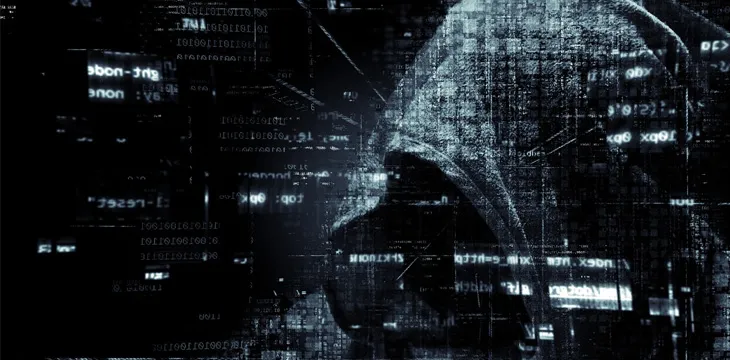|
Getting your Trinity Audio player ready...
|
First things first: the black market is not a Bitcoin problem. It’s a trade problem.
Bitfury’s tools will undo anonymity mechanisms
While it’s easy to trace the transactions related to any Bitcoin address, users can “shuffle” their transactions with other users through services like CoinShuffle or CashShuffle, and effectively jumble the hashes so it would be impossible to trace the transactions to the right addresses. Or so, that was how it worked.
In 2016, Bitfury released “Shared Send Untangling in Bitcoins” which would supposedly enable one to track down the owners of transactions even when they have been shuffled. The other day, Bitfury announced the release of yet another tracking tool—its “crime-fighting” software, Crystal, which they have been working on for two years with the help of government officials.
“The core of the toolkit is a detailed risk scoring solution that helps law enforcement agents and investigators trace suspicious transactions to a final address, or a point of withdrawal,” CoinDesk reports. Crystal would detect and alert institutions of suspicious addresses and malicious transactions as the funds circulate.
Additionally, they have released another method last month, titled Automatic Bitcoin Address Clustering that would “cluster” different Bitcoin addresses together if it is determined that they belong to the same user. This means that both shuffling and using multiple addresses to conceal your identity can now be undone.
In other words, these privacy, security, and anonymity methods cryptocurrency holders use are no longer effective. Shuffled transactions can be unshuffled; the owner of multiple addresses can be pinpointed, enabling law enforcers to trace which transactions belong to addresses cybercriminals own and possibly nab them at a “point of withdrawal.”
Possible casualties
These tools and their official purposes sound great, if the tools are strictly used for those purposes alone.
“If.”
One of the main reasons why some choose to shuffle their transactions and use multiple addresses is to protect themselves from cybercriminals in the first place. Should these tools be reproduced—which they most likely will be, they can actually be used to commit even more crime against ordinary users. In fact, Tor (The Onion Router)—the network used to access the dark web itself, was originally created by the US government. Now it houses the black market the government has been desperately trying to snuff out.
Crystal, which will be available for commerce, can be used to trace “suspicious transactions,” and will allow you to do so anonymously. “Crystal goes beyond Blockchain and collects information about Bitcoin addresses and entities from other sources, such as web forums and other websites where Blockchain users congregate. Thanks to this comprehensive approach, Crystal can reveal not just an entity’s address, but also its actual real-world name,” the paper reads.
Don’t get me wrong: preventing illegal trade is of course, a noble cause. But it’s hard not to imagine how this can be used for malicious purposes. Breaking down privacy and anonymity in Bitcoin doesn’t seem like the right solution. In fact, it might not even be the right problem.
For catching criminals, and maybe hauling out whales
The dark web—the black market that operates within it, is not a “Bitcoin problem.” It’s a trade problem probably as old as trade itself, or at least as old as the time it was decided that they be outlawed. But for as long as there is a way to exchange one thing for another, this industry will persevere. Any currency whether digital or fiat can be used for criminal activity—in fact, it’s highly likely that majority (or all) fiat money in circulation has been involved in something “bad” at one point or another.
Any medium of exchange or store of value, whether it’s diamond, gold, even onions if they ever become rare enough, will continue to be used for illicit activity.
From the perspective of preventing illegal activities such as drug and human trafficking—sure, tracing “dirty money” has its benefits. But then it seems futile unless you can actually get one of these criminals to cash out through a KYC/AML-compliant exchange which means their identity can be found out, or some other method where a criminal gives his or her identity up somehow. But this is a rookie mistake. The reason why the black market has thrived on the dark web is precisely because the dark web requires a certain level of nerd intelligence. Sure, they may slip up at some point but the chances are bleak. They’re likely to steer clear of mainstream exchanges, or cryptocurrencies as a whole—so there’s that upside.
But then they’ll just go back to the black market where they can sell their tainted bitcoins to fellow dark web users, or they can just go back to other payment methods—so that brings us back to the same problem. It’s an endless goose chase.
Unless this is a precursor to something else: will people and exchanges eventually be legally obliged to refuse “unclean” bitcoins? Normal, law-abiding citizens will probably comply. But cybercriminals, because they are cybercriminals, normally transact with fellow cybercriminals in the dark web. Refusing payment because they’re tainted, “unclean” coins will merely result in a bonding moment, much like the one below.

Given that this might have very little effect on the illegal trade, it makes you wonder whether the whole project was less about catching cybercriminals than it was about tracking down whales. After all, the cryptocurrency industry has been making instant millionaires as of late, and the taxman is lagging behind.
If this is true, there’s “technically nothing wrong” with this, of course. Although being upfront about it would have been a little more dignified. But of course, we wouldn’t want to pile on the news especially at a time when cryptocurrencies are already on a downward trend.

 07-12-2025
07-12-2025 





